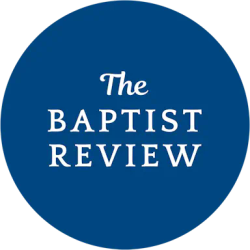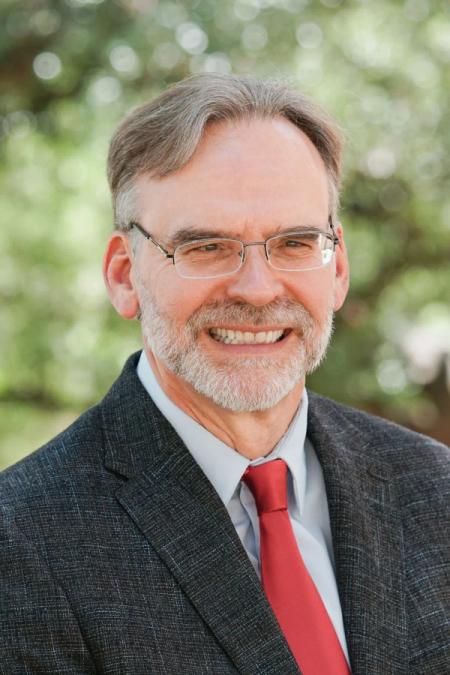Southern Baptists are heirs to a tradition which speaks about “creeds” and “confessions” as they articulate the Scriptural faith without detracting from the ultimate authority of the Bible for faith and practice. Benajah Harvey Carroll, the first president of the Southwestern Baptist Theological Seminary, offers Southern Baptists a way forward in understanding the role ancient Christian creeds and recent Baptist confessions play in the life of the church by distinguishing Baptist teaching about creeds and confessions from other traditions, such as Roman Catholicism or Presbyterianism.
The first aspect to note is that Carroll distinguished creed from confession, while affirming both. First, a creed is “what we believe.” Second, a confession of faith is “a declaration of what we believe,” or a statement of faith. The first describes the nature of the Christian faith derived through the grace of divine revelation. The second is a personal or communal expression of that faith. The Baptist Faith and Message, like its predecessor, the New Hampshire Confession, is therefore a confession, not a creed.
The second notable aspect of Carroll’s thought is that he correlated the creed with the essence of the Christian faith. The creed is the faith we see revealed in Scripture. It thus has authority over one’s whole life and should be expressed in word and deed. It is both a “fixed deposit delivered to the saints” and something “of inestimable value” which we receive. The true creed is, therefore, of a higher order than any one confession, just as Scripture retains authority over every church proclamation.
Third, Carroll repeatedly described the Christian creed, but he wisely refrained from permanently defining it. To redefine what only Scripture defines would be to presume an authority or perfection no mutable mortal may ever arrogate to himself. The Word of God alone may establish a creed. As Carroll wrote, “The New Testament is the authority both for having a creed and the expression of it.” The creed is the faith, and only the Bible authoritatively conveys that faith. “It is not the object of the creed to put it above the Bible, nor in the place of it.”
Fourth, as a careful reader of Scripture, he knew the apostles provided variable descriptions of the creed. “The Bible sets forth the matter of creed,” and “over and over again the creed is given.” Once, he described seven creeds from the Scriptures; in another place, eight. Some have two points, some three, some four, some six. Second Timothy 3:16 was a particular favorite. The true Christian creed is a living reality which requires constant biblical exegesis to perceive, faithful exposition to confess properly, and lifelong repentance to live well.
Fifth, in line with apostolic precedent, Carroll never finally settled on any fixed human confession of the divinely given creed. The creed is something which “should enlarge, and not diminish, up to the last utterance of revelation.” For instance, he rejected the Abstract of Principles from Southern Seminary, where he was a trustee, as insufficient. For the new seminary founded by Baptists in Texas, Carroll and George W. Truett chose the New Hampshire Confession, which had the authority of settled church use rather than entity invention. Even then, the greater confession was modified for the new entity’s use. Confessions, like their creators, remain mutable as they are “transmitted into experience.” The amendability of confessions is a crucial piece of preserving the authority of the Bible. The Baptist Faith and Message, for example, has undergone two significant revisions and multiple minor revisions.
Sixth, Carroll held that confessions must be multiple according to the contexts in which they are employed. They necessarily vary according to the church, according to their intended use, and according to the maturities of the Christians using them. Confessions may be used for church membership, for establishing orthodoxy to judge heretical teachers, even for determining the ownership of church property. Church members should have lower confessional requirements than church teachers, with deacons held to standards somewhere between members and teachers.
Seventh, Carroll roundly rejected the idea that Christians may limit the creed. Among the opponents he had in mind when protesting sayings like, “Less creed and more liberty,” were Alexander Campbell and purveyors of modernism. He also had in mind rogue teachers who twisted Scripture to their own ends while claiming they were biblical. He warned Christians against “being a victim of every foolish doctrine of every evangelical tramp that came along.” Instead, we should fully discern the Bible’s creed and responsibly develop our interpretive confessions of it.
Eighth, when Carroll described the creed, he emphasized three great truths among the many others taught by Scripture. He gave the highest priority to, “the nature, being, attributes, and offices of the triune God.” He secondly emphasized, “the Holy inspired Scriptures.” Thirdly, while he taught other biblical doctrines, from church polity to angels, he was convinced the New Testament articles of faith “particularly” attended to “the personality of the Messiah, his pre-existence and deity,” and his saving gospel. Carroll would doubtless agree with our previous inference that the honor of the Lord Jesus Christ is of inestimably greater weight than that of a human office.
Ninth, the locus for the disciplinary use of a confession, which expresses a creed, remained for Carroll the context of “the particular church.” Carroll had in mind the life of a real local church when he wrote about creeds and confessions. He was not patient with abstract academic debate about dead letters and denominational platitudes about mere human definitions. Rather, he believed the local church’s confession “should have living articulation connecting with the whole body of church members.” This dynamic confessional life, of course, derives from the “vital connection” which each member in that church has with Christ, living under his immediate rule as Lord.
Finally, with these truths about Baptist creedalism in mind, we must address innovative assumptions about the Baptist Faith and Message. If Carroll can provide a standard for the use of Baptist confessions, and we believe he can, he would never ignore gross teaching and evil actions coming from the occupants of the pastoral office to focus merely on that office’s definition. He would also approve the use of confessions to hold accountable the employees of human entities but warn strenuously against presuming a denominational construct has any priority whatsoever over the ruling presence of the only Lord Jesus Christ in his covenanted body.
Southern Baptists must recognize our common statement of faith is a significant unifying confession in that it articulates our current understanding of Scripture’s own creed and our shared commitment to pursuing Gospel ministry with like-minded Christians. The pursuit of right-thinking and right-speaking regarding God’s work in Jesus Christ reconciling the world to himself does not happen in an academic vacuum, but in the cooperative work of Christians in Baptist churches confessing the faith and living it out.
In this endeavor, we should heed the wisdom of the fifth-century pastor Cyril of Alexandria who, in the midst of fighting against the distortions of the person of Jesus Christ by the Nestorians, stated: “I will not take up this fight for the sacred dogmas mean-spiritedly; no, I shall raise up the truth in the full battle array against those who think perversities.” May we learn again to confess the full creed of Scripture with every fiber of our strength as we proclaim the saving gospel and preserve the sacred honor of the living Lord Jesus Christ by emulating the winsomeness, wisdom, and vigor of truly orthodox Christian pastors from the early church to the early twentieth century.



